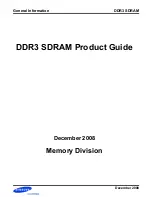
What is Disconnect Unauthorized Device (DUD)?
107
For further information about RADIUS, see
“What is RADIUS?”
on
page 112
.
Important
Considerations
This section contains some important considerations when using Network
Login on the Switch 4400.
■
Before you enable Network Login you must ensure that:
■
RADIUS has been configured on the Switch.
■
The RADIUS server in your network is operational.
■
If the RADIUS server fails or is unavailable, client devices will be unable
to access the network.
■
Network Login is not supported on ports configured to operate as
members of an aggregated link.
■
Network Login is not supported on ports configured to operate as
members of a resilient link.
■
Some client devices that are connected to the Switch port may not
support the authentication service, for example printers. You should
configure the Switch port to operate in Automatic Learning mode, so
that network traffic that does not match the MAC address for the
client device is filtered.
■
You should enable Network Login on all relevant Switch ports. Failure
to enable authentication on a single port could compromise the
security of the entire network.
What is Disconnect
Unauthorized
Device (DUD)?
The port security feature Disconnect Unauthorized Device (DUD), disables
a port if an unauthorized client device transmits data on it.
DUD is automatically enabled when a port is set to one of the following
port security modes:
■
Automatic Learning
■
Network Login (Secure)
■
Network Login with NBX
How
DUD
Works
Disconnect Unauthorized Device (DUD) protects the network by checking
the source MAC address of each packet received on a port against the
authorized addresses for that port.
Summary of Contents for 3C17203 - SuperStack 3 Switch 4400
Page 8: ...GLOSSARY INDEX ...
Page 14: ...14 ...
Page 26: ...26 CHAPTER 1 SWITCH FEATURES OVERVIEW ...
Page 44: ...44 CHAPTER 3 USING MULTICAST FILTERING ...
Page 55: ...How STP Works 55 Figure 13 STP configurations ...
Page 58: ...58 CHAPTER 4 USING RESILIENCE FEATURES ...
Page 84: ...84 CHAPTER 7 STATUS MONITORING AND STATISTICS ...
Page 92: ...92 CHAPTER 8 SETTING UP VIRTUAL LANS ...
Page 98: ...98 CHAPTER 9 USING WEBCACHE SUPPORT ...
Page 120: ...120 CHAPTER 12 POWER MANAGEMENT AND CONTROL ...
Page 122: ...122 ...
Page 126: ...126 APPENDIX A CONFIGURATION RULES ...
Page 134: ...134 APPENDIX B NETWORK CONFIGURATION EXAMPLES ...
Page 150: ...150 GLOSSARY ...
















































